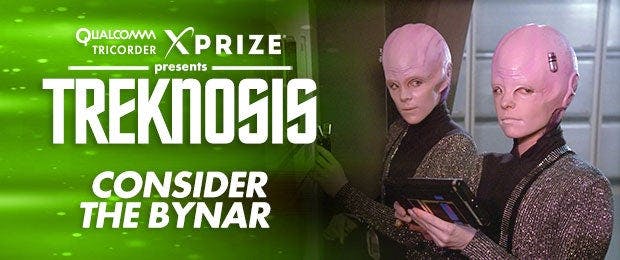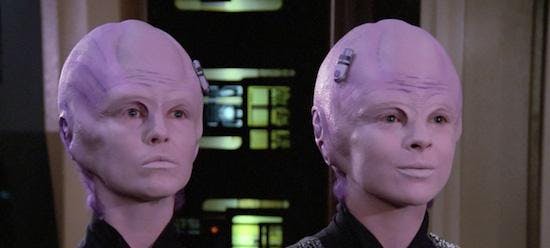
So you've been in an accident. You’ve suffered a traumatic brain injury, and the doctors weren't even sure you'd make it. But here you are—alive! There's just one a catch: your declarative episodic memory is shot.
"Declarative epi-what?" you ask.
"Have you ever seen the movie Memento?" your doctor replies.
"What do you mean?" you ask.
"We had this exact same conversation yesterday. And the day before."
All right, this isn’t exactly the way it went down, but it’s essentially what happened to Thomas Dixon a few years ago. Dixon had gone out for a jog when he was injured in a hit-and-run. The crash damaged a specific part of his brain and he lost a key function of his memory. He can remember who he is and the details of his life before the accident, but can't retain anything permanently since then that relates to what we might think of as autobiographical detail: things like where he is and what he's doing will just fade away like mist. It's a problem that Dixon has taken an innovative technological approach to solving: Twitter.

Dixon has a private Twitter account that he uses to quickly jot down notes to himself about what he's doing at the moment—things he isn't sure he'll be able to recall later. It's a fantastic solution, honestly:
• It's compact. Tweets are constrained to 140 characters, so Dixon has to be concise in his notes.• It's time-indexed. Tweets are automatically time stamped, so he can go back and see what he was doing at various points in a given day.• It's convenient. Jotting something down is as easy as pulling out his phone and sending a tweet.• It's searchable. Dixon regularly downloads the archive of all his tweets so he can look through them and find patterns.
In a very real sense, Twitter is Dixon's backup memory. And it works. Searching his entire archive lets him work out the rhythms of his everyday life; he can tell how much coffee he's had in a week, or whether he gotten any exercise, which might prompt him to go for a run. It's clear his ad-hoc personal archive provides real help.
What if Dixon isn't the only one who'd benefit from something like this? What if backing up all the autobiographical details of our lives from moment to moment was a thing we all did? I can't be the only one who's ever been asked "So, what did you do this weekend?" only to draw a blank. I'd be happy to offload some of that declarative episodic memory into an indexed, searchable archive.
But why stop there? You could also offload another kind of memory referred to as semantic—your knowledge of facts like "four pips on the collar of a red uniform indicates the rank of captain" or "all Bolians are some shade of blue." The outsourcing of semantic memory is actually something we've already been doing without knowing it: every time you pull out your phone to fact-check a question at a dinner party, you're accessing a kind of outboard semantic archive.
Okay, so we might want to consider moving some memory to the cloud for storage, but what else? What if we could outsource actual processing tasks like computation or facial recognition? The algorithms our brains use are unknown to us right now, but experiments with artificial intelligence (not to mention Apple’s Siri) have shown us that computers are capable of processing language; who knows what else they could be capable of eventually? Would it be crazy to outsource thinking itself on some level?

Ask the Bynars, or anyone watching them work, and they'd probably tell you it's worthwhile. There'd be advantages to doing as the Bynars do: we could communicate flawlessly and unambiguously in a fraction of the time we do now; anything involving the creation and maintenance of bug-free software would be practically child's play. And that's just for starters! With computer power literally backing up our ability to think, performing our calculations and freeing us up to ponder problems from a whole new level, is there anything we couldn't do?
The only problem, as the Bynars discovered, is that this grand neural augmentation is frighteningly hardware-dependent. We'd be vulnerable to any sizable electromagnetic pulse sweeping through our backup computer brains and knocking them offline, leaving us to hope for something like a friendly Galaxy-class starship and its 186-exabyte isolinear hard drive to drop by the neighborhood and offer some backup/restore services.

Jon Sung is a contributing writer for XPRIZE and copywriting gun-for-hire to startups and ventures all over the San Francisco Bay area. When not wrangling words for business or pleasure, he serves as the captain of the USS Loma Prieta, the hardest-partying Star Trek fan club in San Francisco.
XPRIZE is an innovation engine. We design and operate prize competitions to address global crises and market failures, and incentivize teams around the world to solve them. Currently, we are operating numerous prizes, including the $30M Google Lunar XPRIZE, challenging privately funded teams to successfully land a robot on the Moon’s surface, and the $10M Qualcomm Tricorder XPRIZE, challenging teams around the world to create a portable, wireless, Star Trek-inspired medical device that allows you to monitor your health and medical conditions anywhere, anytime. The result? Radical innovation that will help us all live long and prosper.
Sign up today to join our mission, be a part of our campaign and win collectibles at: tricorderfederation.org.




